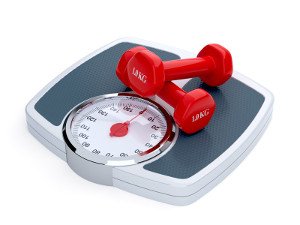The body mass index (BMI) (also known as the Quetelet index) is a measure of an individual’s health, using their weight and height.
It quantifies the amount of tissue mass (i.e. muscle, fat, and bone) in an individual and rates them as underweight, normal weight, overweight, or obese, based on that value.
Many medical practitioners use a BMI to assess your level of health and determine if you are healthy for your height, age, and gender.
Depending on your BMI number, you will be classified as:
– underweight: BMI is < 18.5
– normal weight: BMI is 18.5 to 24.9
– overweight: BMI is 25 to 29.9
– obese: BMI is > 30
It is very important to be in a healthy range for BMI. Individuals who are categorized as normal weight have a lower risk of health complications (such as heart problems or diabetes), and increased self-esteem.
To maintain a healthy BMI, you should exercise regularly, limit alcohol consumption, and follow Canada’s Food Guide to ensure a healthy diet.
Having a low BMI is dangerous and is associated with a lot of health risks. Being underweight is associated with nutrient deficiencies and a compromised immune system.
People who are underweight are more likely to develop diseases like lung diseases, iron deficiency, and heart complications.
To increase your BMI, doctors suggest you increase the amount of nutrient- and calorie-rich food you eat.
Increase your intake of foods like brown rice, granola, bananas, dried apricots, avocados, sweet potatoes, peas, yogurt, milk, fatty fish like salmon and tuna, nuts, and seeds.
As well, it is recommended that you perform strength-training exercises to increase your muscle mass.
Having a high BMI is also dangerous to your health. It increases the risk of cardiac problems (like heart disease and strokes), increases your blood pressure, cancer, and gallstones, and even causes reproductive problems.
Obesity has also been linked to many mental disorders, like depression and anxiety. To lower your BMI, reduce the calories you take in on a daily basis; cut sugar and processed foods from your diet, eat more fruits, vegetables, and lean proteins, exercise regularly, and get 6-8 hours of sleep.



